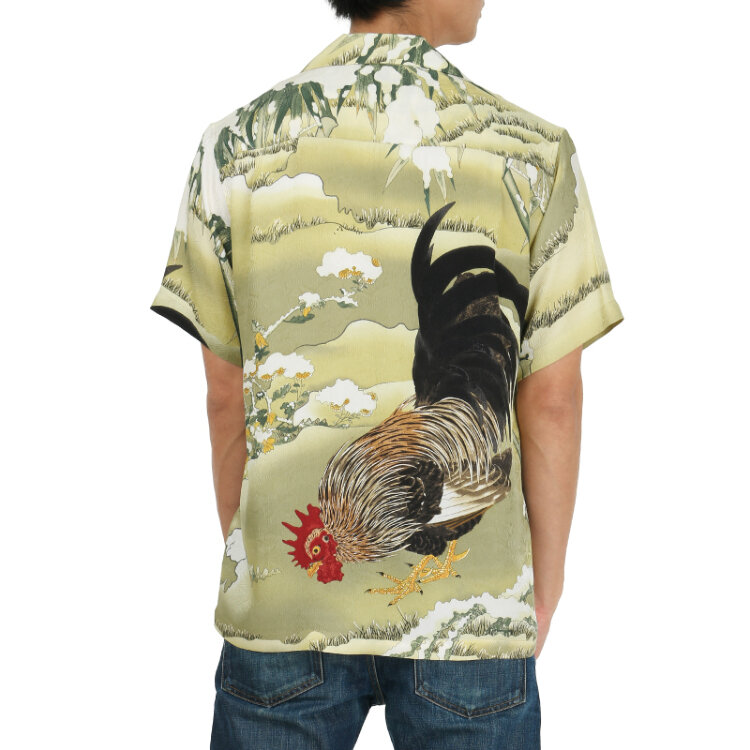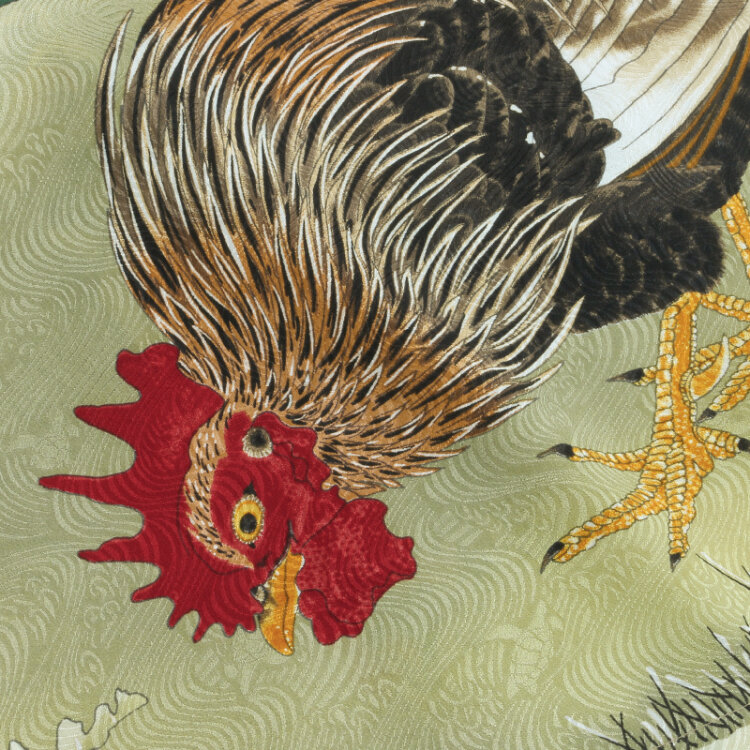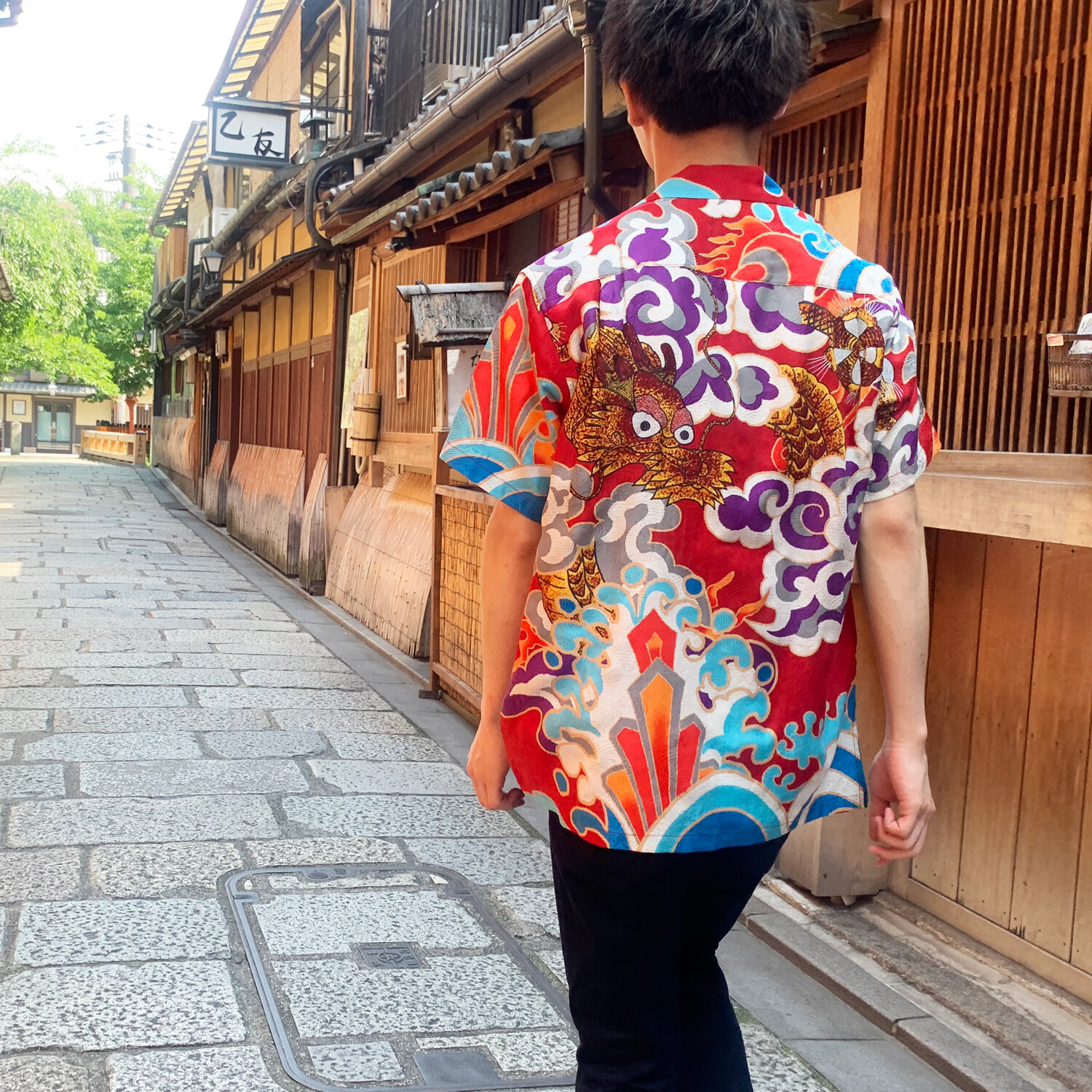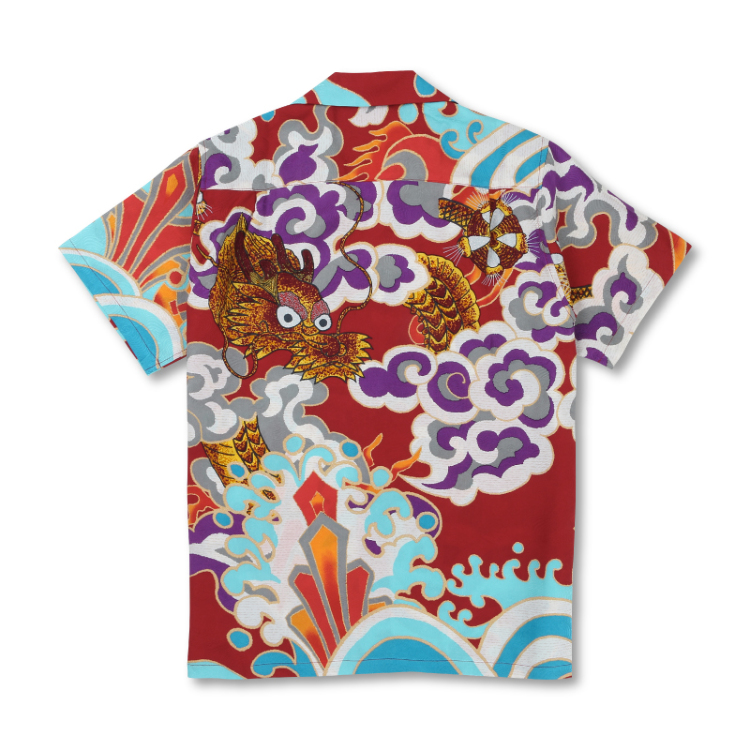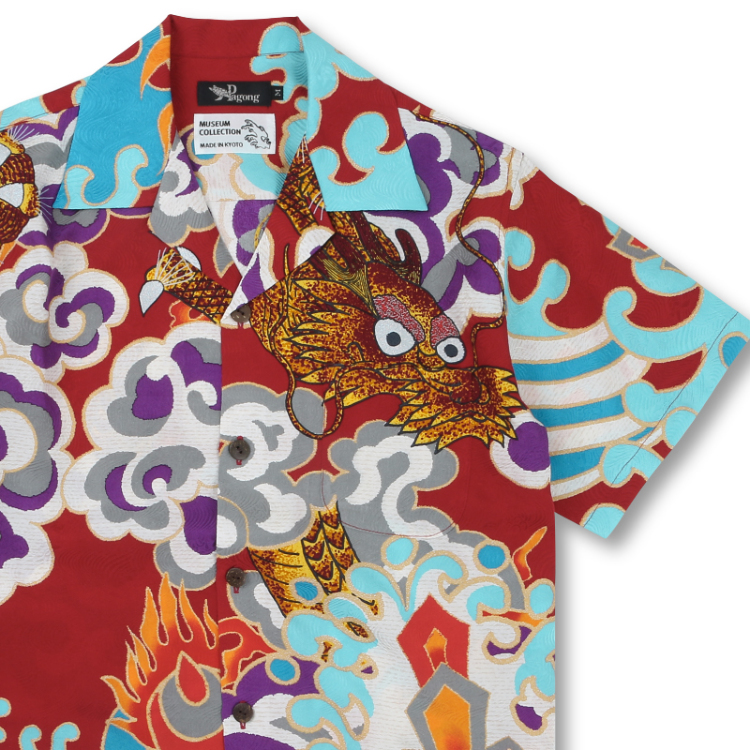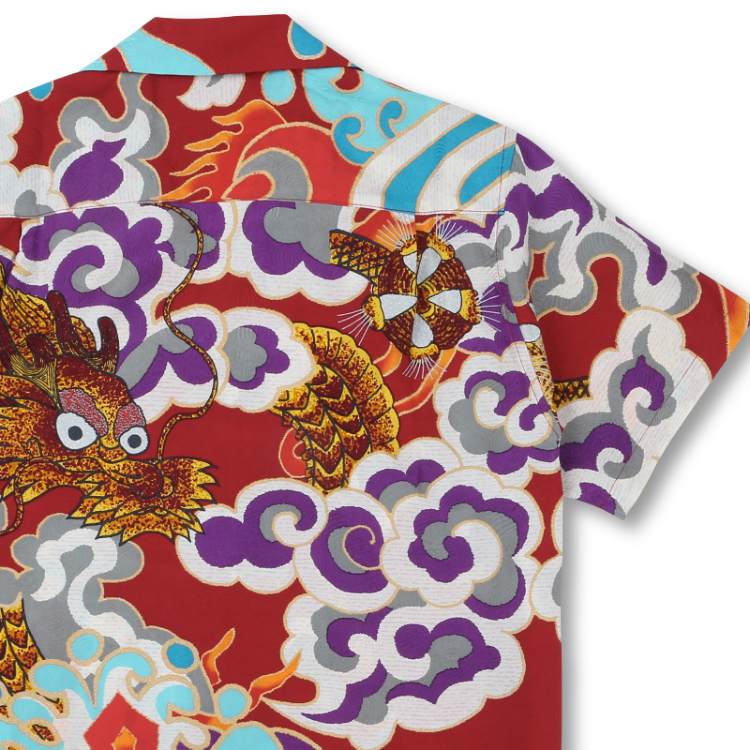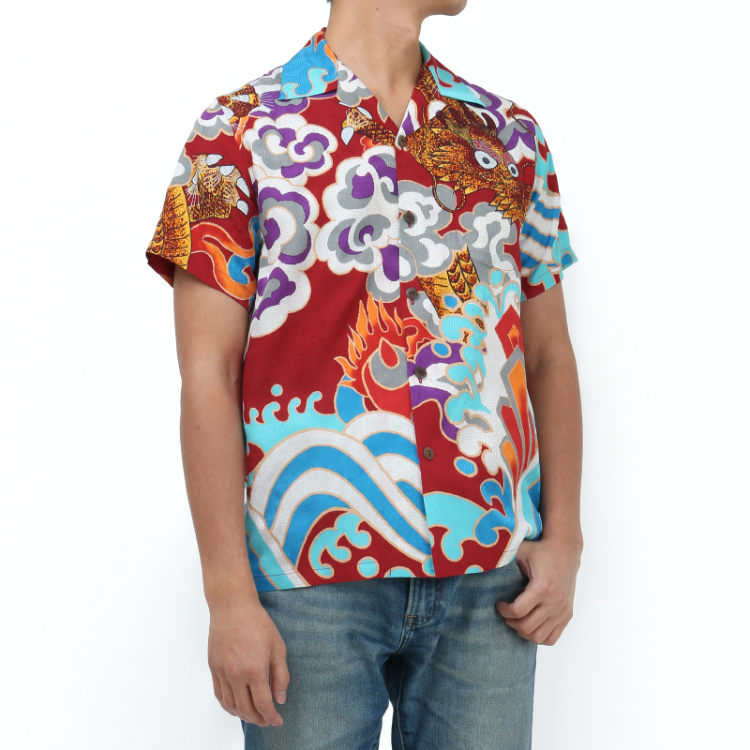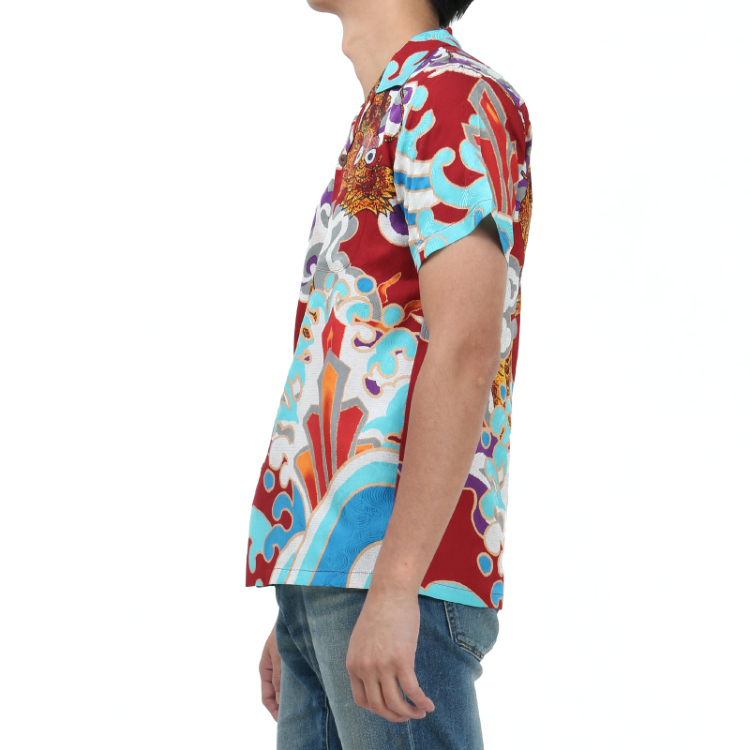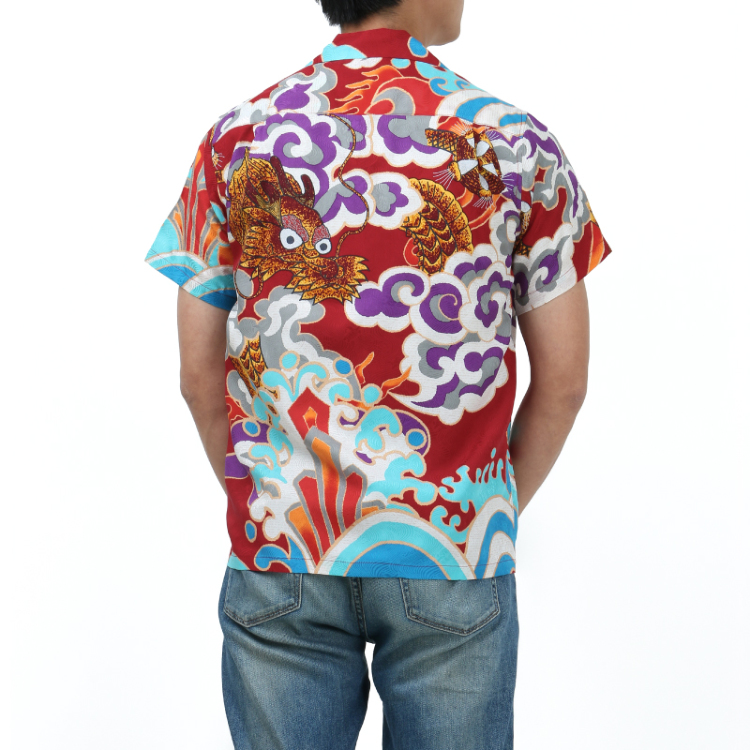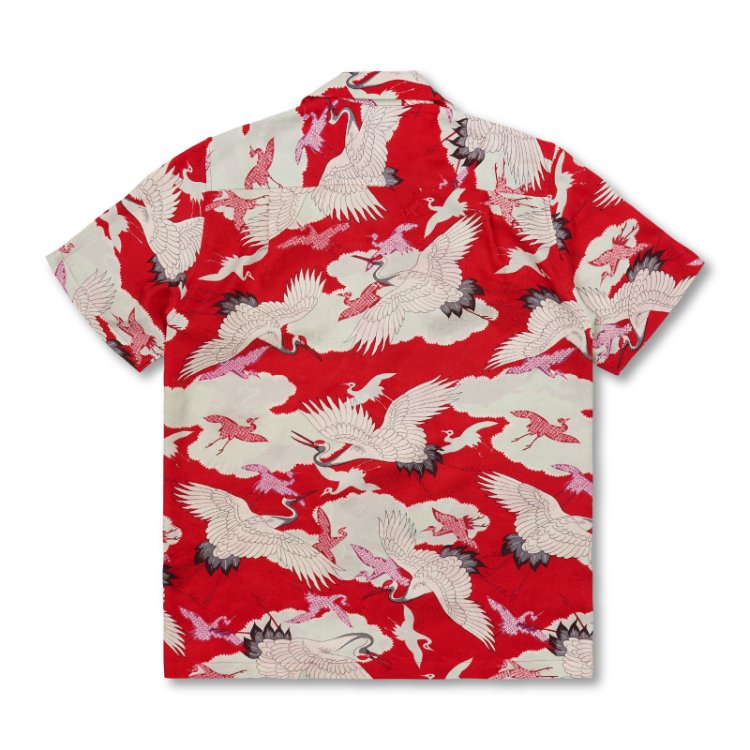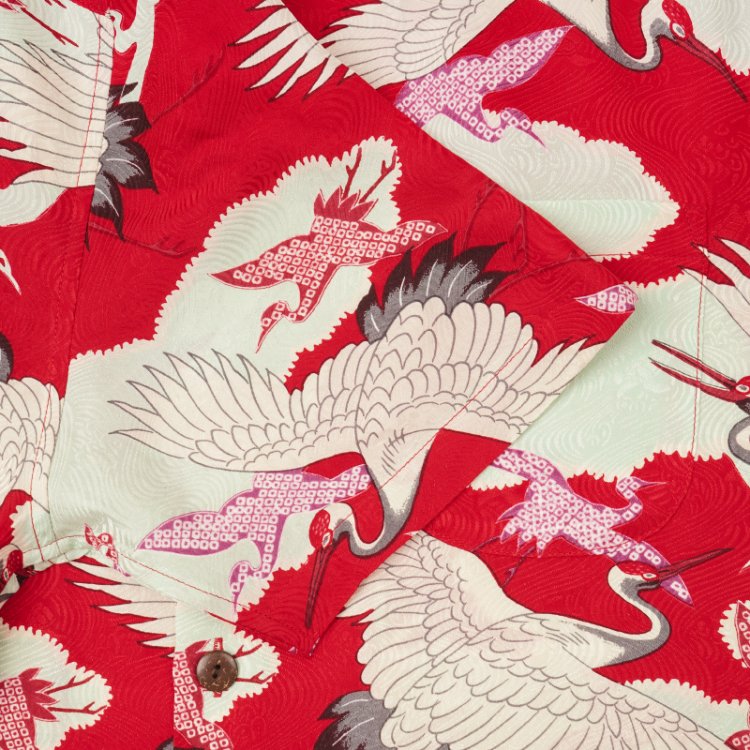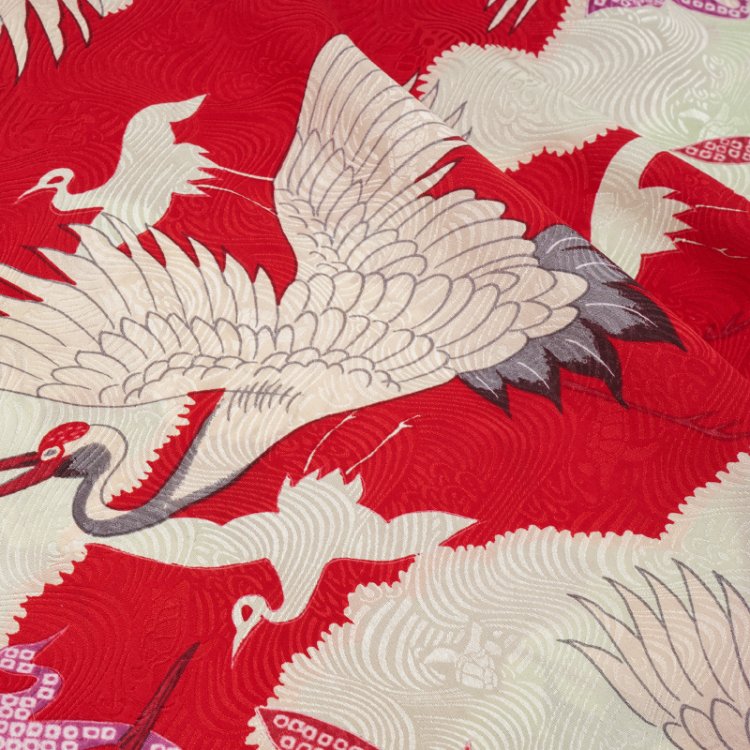ROOSTER IN THE SNOW Silk Aloha Shirt
Color / Light Green and Black Size Chart Care Instruction
Japanese name/ 雪中雄鶏図 Setchū ondori
-About-
Jakuchū Ito (March 2, 1716 to October 27, 1800) was raised in the Nishiki area of Kyoto during the “golden age of art” of the Edo era, before Japan opened its doors to the outside world.
The eldest son of a wholesale vegetable merchant, Jakuchu was self-taught, and passionate about painting from childhood. A student of Buddhism at the Shokoku-ji zen monastery, he devoted himself to the art of painting, taking inspiration from the temple’s collection of Chinese Yuan and Ming dynasty paintings.
With nature as his teacher, he made thorough sketches of all natural phenomena, especially fowl, which he used to keep at his home in order to closely observe and study their nature.
This is Jakuchu’s earliest known painting, created in his thirties when he was still actively working in his family’s business. In a playful style which he would become known for, Jakuchu depicts a lone rooster pausing for a moment, aloof from the world, searching for food among the thickly-piled snow.
The rooster is considered a creature of virtue, and in this outstanding rendering, Jakuchu’s meticulous attention to precision and detail bring the subject to life.
At Pagong, in celebration of the 300th anniversary of the birth of Jakuchu Ito, we wish to breathe new freshness into this masterpiece with the use of a kimono dyeing technique called Kyo-Yuzen.
~A collaboration with the Hosomi Museum, Kyoto.
・Currency : US Dollar (USD)
・100% Silk (Custom-woven Jacquard )
・Made in Japan
・Classic-fit Aloha shirt
・Coconut buttons
・Dry-clean
Color / Light Green and Black Size Chart Care Instruction
Japanese name/ 雪中雄鶏図 Setchū ondori
-About-
Jakuchū Ito (March 2, 1716 to October 27, 1800) was raised in the Nishiki area of Kyoto during the “golden age of art” of the Edo era, before Japan opened its doors to the outside world.
The eldest son of a wholesale vegetable merchant, Jakuchu was self-taught, and passionate about painting from childhood. A student of Buddhism at the Shokoku-ji zen monastery, he devoted himself to the art of painting, taking inspiration from the temple’s collection of Chinese Yuan and Ming dynasty paintings.
With nature as his teacher, he made thorough sketches of all natural phenomena, especially fowl, which he used to keep at his home in order to closely observe and study their nature.
This is Jakuchu’s earliest known painting, created in his thirties when he was still actively working in his family’s business. In a playful style which he would become known for, Jakuchu depicts a lone rooster pausing for a moment, aloof from the world, searching for food among the thickly-piled snow.
The rooster is considered a creature of virtue, and in this outstanding rendering, Jakuchu’s meticulous attention to precision and detail bring the subject to life.
At Pagong, in celebration of the 300th anniversary of the birth of Jakuchu Ito, we wish to breathe new freshness into this masterpiece with the use of a kimono dyeing technique called Kyo-Yuzen.
~A collaboration with the Hosomi Museum, Kyoto.
・Currency : US Dollar (USD)
・100% Silk (Custom-woven Jacquard )
・Made in Japan
・Classic-fit Aloha shirt
・Coconut buttons
・Dry-clean
Color / Light Green and Black Size Chart Care Instruction
Japanese name/ 雪中雄鶏図 Setchū ondori
-About-
Jakuchū Ito (March 2, 1716 to October 27, 1800) was raised in the Nishiki area of Kyoto during the “golden age of art” of the Edo era, before Japan opened its doors to the outside world.
The eldest son of a wholesale vegetable merchant, Jakuchu was self-taught, and passionate about painting from childhood. A student of Buddhism at the Shokoku-ji zen monastery, he devoted himself to the art of painting, taking inspiration from the temple’s collection of Chinese Yuan and Ming dynasty paintings.
With nature as his teacher, he made thorough sketches of all natural phenomena, especially fowl, which he used to keep at his home in order to closely observe and study their nature.
This is Jakuchu’s earliest known painting, created in his thirties when he was still actively working in his family’s business. In a playful style which he would become known for, Jakuchu depicts a lone rooster pausing for a moment, aloof from the world, searching for food among the thickly-piled snow.
The rooster is considered a creature of virtue, and in this outstanding rendering, Jakuchu’s meticulous attention to precision and detail bring the subject to life.
At Pagong, in celebration of the 300th anniversary of the birth of Jakuchu Ito, we wish to breathe new freshness into this masterpiece with the use of a kimono dyeing technique called Kyo-Yuzen.
~A collaboration with the Hosomi Museum, Kyoto.
・Currency : US Dollar (USD)
・100% Silk (Custom-woven Jacquard )
・Made in Japan
・Classic-fit Aloha shirt
・Coconut buttons
・Dry-clean
All of our 100% silk aloha shirts have our logo of “sea turtle and wave”, woven into our custom-made silk fabric.
We take pride in our clothing being designed, dyed, steamed, washed, and sewn entirely in Kyoto, Japan.
Over this intricately woven pattern, we dye our designs…
Pagong’s personal archives house 6000 Kimono patterns, which we choose from, as well as from museum archives.
If there is anything we can help you with, please feel free to let us know.
Contact Form >> www.pagongkyoto.com/contact







